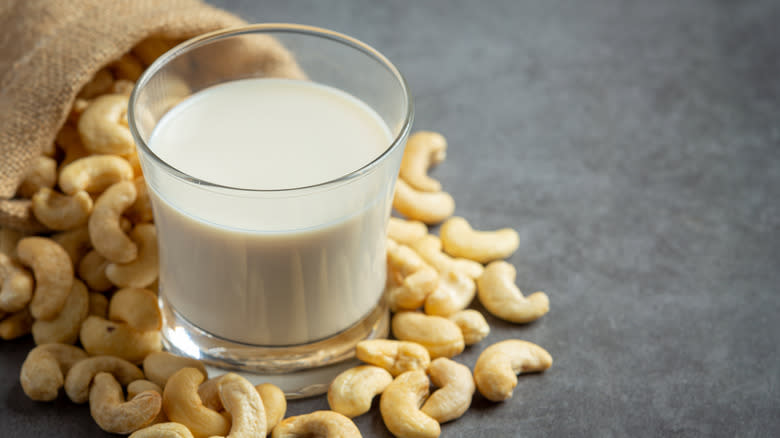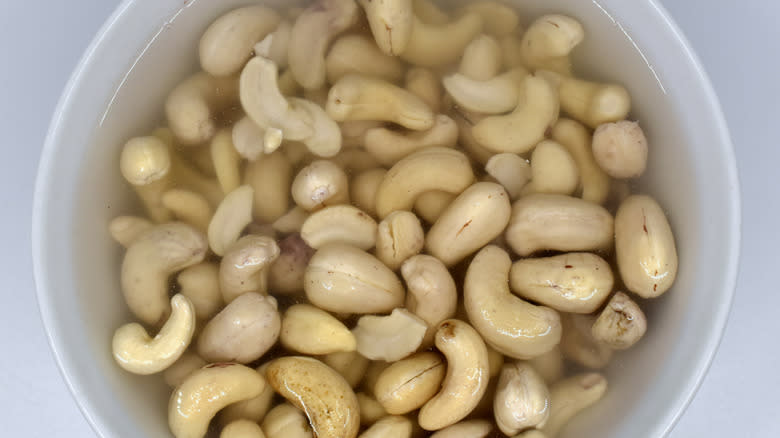Why It Pays To Soak The Nuts When Making Your Own Cashew Milk

Cashew milk is a veritable fountain of youth, providing countless health benefits to keep our hearts, eyes, skin, immune systems, and blood as pure and vivacious as the day we were born. Cashews have a sumptuous buttery sweet flavor and a creamy, decadent texture that breaks down into the richest, smoothest dairy-free milk. Cashew milk is thus one of the easiest types of milk to make at home, requiring no tedious straining or sieving.
While making cashew milk is as easy as throwing cashews and water into a blender, soaking cashews is the one step you never want to skip. It pays to soak cashews in water for both nutritional and practical purposes. Soaking cashews, or any seeds, will rid them of compounds known as anti-nutrients that create an impenetrable barrier around their wealth of nutrients. Once the anti-nutrients break down, we can fully digest them and effectively absorb all their nutrients.
From a practical standpoint, soaking cashews primes them for blending and increases the volume of cashew milk; Cashes inflate and soften as they soak, aiding their quick disintegration and thorough emulsification with water for the creamiest, dreamiest milk.
Ideally, you should soak cashews overnight, but a four-hour soak is enough to soften them and draw out key nutrients. If you're short on time, many recipes recommend using hot water for a quicker soak.
Read more: 26 Coffee Hacks You Need To Know For A Better Cup
Soaked Cashews Aren't Just For Milk

Soaking cashews helps us reap their nutritional benefits while also facilitating their quick and easy dissolution into uniformly creamy milk. However, soaked cashews are the key to textural and nutritional success in plenty of other recipes. In fact, some nutritionists recommend soaking raw cashews before dehydrating them to eat as a crunchy snack to aid in digestion and nutrient absorption.
Cashews were one of the pioneering ingredients for vegan cheeses and creams. You can thus blend soaked cashews with a smaller proportion of liquid to create a thick cashew cream. If you use equal parts water and soaked cashews, you'll achieve the thickness of sour cream. A squeeze of lemon juice, mustard, and a helping of nutritional yeast will turn your cashew cream into a cheese sauce for macaroni.
Soaked cashews also make great additions to smoothies for a richer flavor, thicker consistency, and a boost of protein and healthy fats. They'd taste delicious in a tropical smoothie with coconut milk, frozen mango, pineapple, and banana. You could even use soaked cashews as the base for dairy-free ice cream by blending it with sugar, plant-based milk, a dash of vanilla, and a touch of cinnamon before pouring it through an ice cream maker.
Read the original article on Tasting Table.